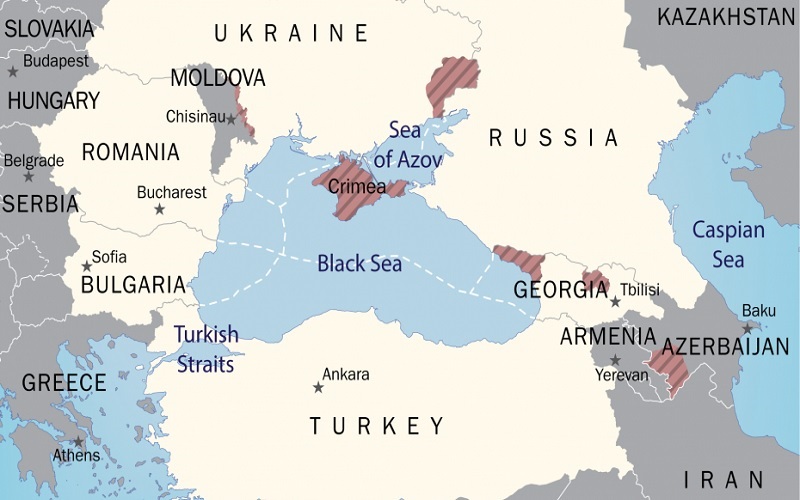
Turkish Defense Minister Hulusi Akar shared a very pragmatic stance towards Black Sea geopolitics the other day. Here’s what he’s reported by Hurriyet as having said on 25 April:
“We want the balance not to be broken here [in the Black Sea], within the scope of the principle of regional ownership and the domination of the situation by the littoral countries. If the balance deteriorates, the probability of events getting out of control is very high. Let’s not turn the Black Sea into an environment of competition. That’s what we’re saying openly.
…
We have some suggestions for maintaining the stability of the Black Sea: Do not get excited, do not get panicked. It may cause panic on the other side, as well. Misinformation can lead to misunderstanding. Let’s respect Ukraine’s borders and sovereignty, but on the other hand let’s not do anything that can be perceived as provocation on the other side.”
This position will now be analyzed since it certainly took many observers by surprise, especially those in the Alt-Media Community (AMC) who’ve been fantasizing about another Russian-Turkish War.
Russian-Turkish ties are incredibly complex, beleaguered as they’ve always been by their historical baggage of fighting more wars against one another over the centuries than pretty much any pair of countries ever, yet their leaders have responsibly regulated their rivalry across Afro-Eurasia. This was done because they realized that third parties like the US are actively trying to divide and rule them.
Nowadays “Russian-Turkish Relations In The New Cold War Are Much Better Than Many Might Think”. Despite condemning Moscow at the UN, Ankara hasn’t complied with its US-led Western allies’ demand to sanction it. Trade and tourism continue, and Turkey is reluctant to get embroiled in the US’ proxy war on Russia through Ukraine even though it’s sold drones to Kiev for use against Russia.
It’s impossible to ever remove the rivalry variable in their relations since both Great Powers have overlapping “spheres of interest” in Afro-Eurasia that sometimes result in them more actively competing against one another. Be that as it is, there are also certain red lines that they’ve thus far respected, which in the context of this analysis includes stabilizing their shared Black Sea region.
The US wants Turkey to play an active role in “containing” Russia, though Ankara thus far has wisely refused to do so out of concern that Moscow could complicate its security situation in West Asia from its Syrian base of operations. The Kremlin’s asymmetrical response to Turkey supporting NATO’s naval “containment” of Russia could be to once again support Kurdish separatists like it’s historically done.
That “trump card” isn’t just the only reason why Turkey hasn’t complied with America’s demands. The other is that the US simply doesn’t have anything to offer Turkey in order to make the resultant asymmetrical security risks worth it. Washington continues to pressure Ankara in multidimensional ways, including through its ongoing economic and financial warfare against that geostrategic state.
President Erdogan doesn’t trust the US whatsoever at all after it conspired to overthrow him during summer 2016’s failed coup attempt. By contrast, while he doesn’t completely trust President Putin (seeing as how no leader should ever fully trust any of their counterparts), he nevertheless believes that he’s pragmatic enough to enter into mutually beneficial cooperation with.
This explains why those two leaders have thus far been able to responsibly regulate their rivalry, with this example from the top presumably influencing the Turkish Defense Minister to share his pragmatic stance about Black Sea geopolitics. Ankara is keenly aware of how Moscow would perceive its participation in NATO’s naval “containment” mission, hence why it’s not interested in contributing to it.
This position deserves to be praised no matter what anyone might personally think about Turkey, its present leader, or some of its regional policies such as its military activity in Syria. Credit should go where it’s due, and with that being said, Turkey is indeed practicing an (imperfect) policy of principled neutrality that serves to accelerate preexisting multipolar trends at the US’ hegemonic expense.
By Andrew Korybko, American political analyst
Published by OneWorld.press
